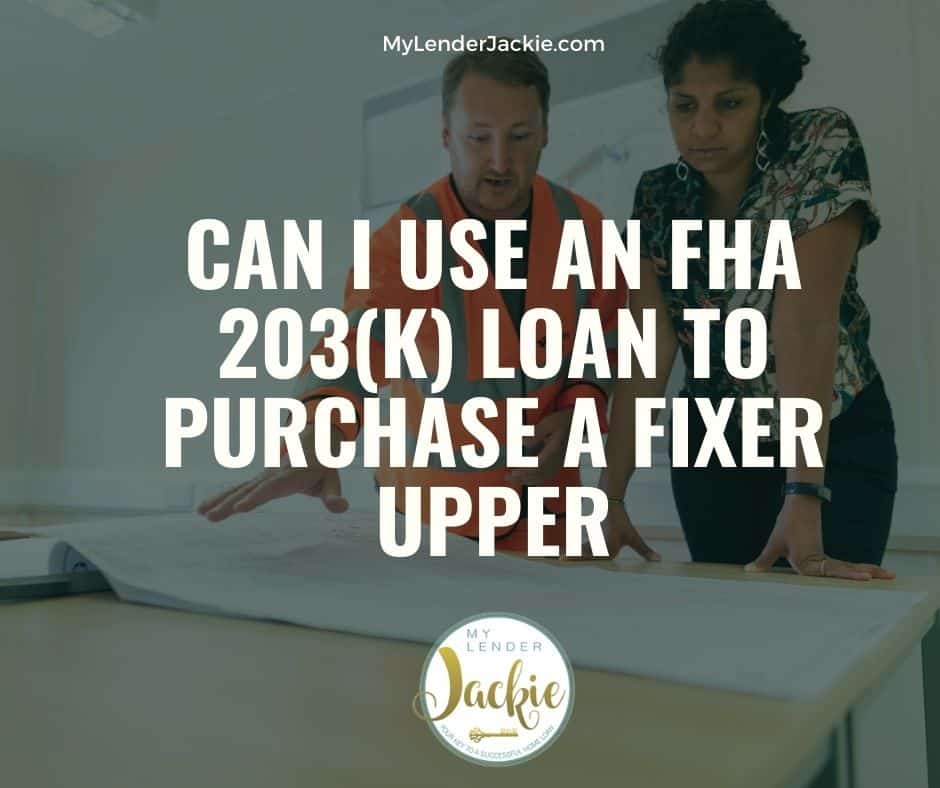Purchasing a property in need of repair can be a good way to save some money on a home that has all of the attributes you really want and the potential to become something you love. How will you pay for the repair work to make it into the home of your dreams?
An FHA 203(k) loan is an option many home buyers seek out when looking to purchase distressed and even foreclosed or short sale properties. These loans are also sometimes referred to as a mortgage rehab loan or Section 203(k) loan.
What is an FHA 203(k) loan?
This type of loan allows the buyer to finance the purchase price of the home while also borrowing money for the cost of repairs. This mortgage is backed by the Federal Housing Administration (FHA). These types of loans cover the purchase price, cost of repair materials, and cost of labor. 203(k) loans can be 15 or 30 year fixed rate loans or can be an adjustable-rate loan (ARM).
Types of FHA 203(k) Loans?
There are two types of 203(k) loans
Limited 203(k): A limited 203(k) loan is for projects that will cost less than $35,000. This type of loan has no minimum project cost requirement, but cannot be used on structural repairs.
Standard 203(k): A standard 203(k) is for homes needing repairs that will exceed $35,000. The minimum cost of repair requirement for a standard 203(k) is $5,000. Structural changes such as additions or even tearing the home down to the foundation are permitted. The original foundation must remain and building codes must be met.
Some Rules of FHA 203(k) Loans:
There are some rules to be aware of with 203(k) loans they include:
- The maximum loan amount is capped at 110% of the appraised value of the property
- Lenders require borrowers to carry loan insurance
- There is a down payment requirement of 3.5% of the total loan amount including the repair costs
- The amount borrowed has to be within FHA loan limits for the area of location. An applicant borrows the FHA’s maximum FHA loan limit for the area, a total of the home’s final appraisal value after improvement, or a total of the home’s current appraised value plus improvement costs, whichever is the lesser amount.
- Most lenders will require the work to be performed by a licensed contractor, but some lenders will allow homeowners to do a portion of the work themselves after approval
- Work needs to begin no later than 30 days after closing
- Work needs to be completed in 6 months
- Investors can not apply for these loans
- Pros and Cons of FHA 203(k) Mortgages
- Every mortgage has its advantages and disadvantages here are some of those for a 203(k) loan
Pros
- One loan to cover the purchase and renovations
- Low down payment requirements
- Lower credit score requirement
- Lower interest rate as compared to other loan types to cover repairs
- Can cover mortgage payments for the first six months if you are unable to live there during repairs
Cons
- Borrowers must have mortgage insurance
- Interest rates could be higher than a traditional loan
- Some loans require HUD consultant to look at renovation plans
- Larger repairs require more paperwork
- Potential extra costs in inspections and assessments
- Qualification Requirements of 203(k)
The largest qualifier of a 203(k) is that the borrower needs to plan to live in the home. Lenders will want to see that borrowers have at least a 580 credit score, are able to make the down payment, and have a maximum debt to income ratio of 43%. Some borrowers can qualify with a lower credit score, but the down payment requirement becomes higher. Of course different lenders do have the ability to set their own minimum requirements as long as they are not lower than these FHA standard requirements.
For more information on second loans and all of your mortgage options in Mission Viejo and California please contact me anytime.
For help finding the right type of mortgage in California please contact me at any time.
- Tips for Scoring Lower Rates and Speedier Closings on Mortgages Right Now
- Can you buy a new house after forbearance?
- How Does a Mortgage Loan Officer Get Paid?
- Is refinancing from an FHA to Conventional a good idea?
- What is a Mortgage Rate Lock?
- No Closing Cost Refinance
- What You Need to Know About an E-Closing
- Can you refinance a mortgage on a COVID forbearance plan?
- How to Start Saving Money for a House
- Why Fannie Mae and Freddie Mac Impact Every Mortgage

